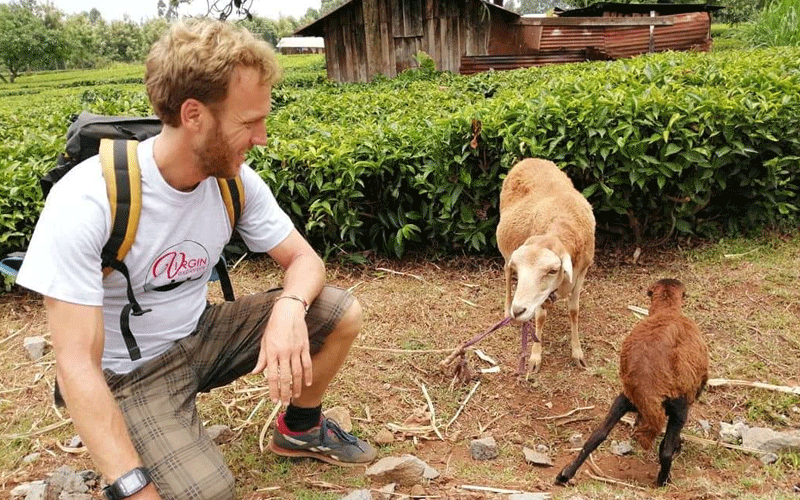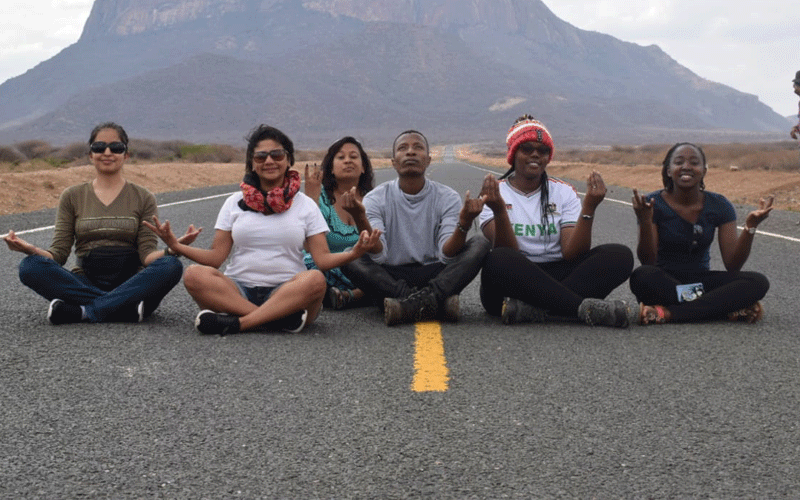The changing wants of modern travellers
By Harriet James, January 30, 2020
Harriet James @harriet86jim
The modern traveller is no longer very keen on traditional bush safaris or lounging on sandy beaches at the Coast, creating a major challenge for tour operators and hoteliers.
Consequently, stakeholders in the tourism industry are being forced to conduct research on the changing needs of today’s tourists, particularly tech-savvy millennials.
“Most travellers are now looking for alternative destinations. More people are going off the beaten tracks and seeking out new and unusual experiences,” warns Tourism and Wildlife Cabinet Secretary Najib Balala.
For instance, over a quarter (27 per cent) of holiday-makers are planning to visit a country they’ve never been to before and almost a third (32 per cent) expect to tour a new resort or city as others seek adventure, research conducted by the Tourism ministry shows.
Tourists now seek leisure upgrades and prefer tourism products that can combine fun, learning and self-improvement.
They are also particular about having high-quality experiences, competitive pricing across the value chain and so demand to be appreciated as well as responded to in real time based on their concerns and preferences.
“People are now able to curate their own travel plans, making them more demanding and more loyal if their expectations are met.
It is no longer about the lack of cash, but what is there for me to do,” notes Fiona Ngesa, Kenya Tourism Board (KTB)’s marketing manager –Africa.
“Such visitors rely on their friends, the Internet or word of mouth to learn about experiences,” she adds.

While in the past holidays were deemed as luxury, more people and families are now planning for it.
According to a KTB 2019 report on domestic tourism, 70 per cent of local travellers are not only planning, but also saving for holidays.
Families that took holidays annually are now taking multiple trips a year. Business travels are also turning into leisurely experiences.
Studies indicate that risky adrenalin activities such as zip lining, skydiving, bunjee jumping, scuba diving and many others are now favoured 45 per cent less than experiencing new culture for intrepid travellers.
“Tourists do not just expect a hotel to provide a room for rent, but to offer end-to-end services by scaling across the travel experience.
The modern traveller is more interested in activities as opposed to a normal hotel stay.
They make enquiries of activities and fun things to do at the destination,” says Eliud Ndung’u, CEO of Safiri Nasi.
It is this change of taste that drove Clement Waigwa, Travel Experience manager at Virgin Explorers to design a new itinerary for his clients. He began a farm and village experience as a niche to cater for such travellers.
“Authentic and experiential travel experience has become a significant travel trend for millennial travellers.
It allows them to experience activity-based travel such as cultural/educational, culinary, voluntourism (volunteer tourism), and adventure and to get connected with people around them,” explains Clement.
This is why Virgin Explorers created an experience that serves both millennials and the old.
“Tourists are embracing the idea of village packed with activities, which is also a first time encounter for many,” he adds.
Food is also becoming the centre of tourist experiences as opposed to just being a ‘by-the-way we ate’ supportive activity.

“There is need for innovation in gastronomy that offers organic meals and special diets.
Also growing is demand for healthy cuisines (eating like a rabbit) with a view to better nutrition, which is driving the new tourism trends,” Balala told stakeholders while releasing the 2019 Kenya Tourism Sector Performance Report recently.
Food experiences
Such demands are a challenge for tour operators and other tourism players who are being forced to offer types of activity with added value to compensate for this trend.
Currently, millennials comprise of the largest travel-spending segment in both spheres of leisure and business travel.
This means that travel firms are dealing with a whole new generation, which have a raised expectation due to the technology advancements, which are enabling improved services globally.
Millennials expect instant services too. “For them, travelling is not relaxing. Setting forth is to live experiences, meet new people, get into the local culture and get completely transformed in the process.
These globetrotters even look for added value in their knowledge and take home some learning of the whole adventure,” says Clement.
As a result, TripAdvisor and Google reviews have become a must for any potential tourist.
In some cases, the traveller even asks for a virtual tour of the destination including accommodation rooms, conference facilities, bar restaurants and surrounding attractions.
“It’s good to note and take care of all potential and current travellers in order to get repeat business,” says John Musau, a tourism sector expert and General Manager, Tamarind Tree Hotel, Nairobi.